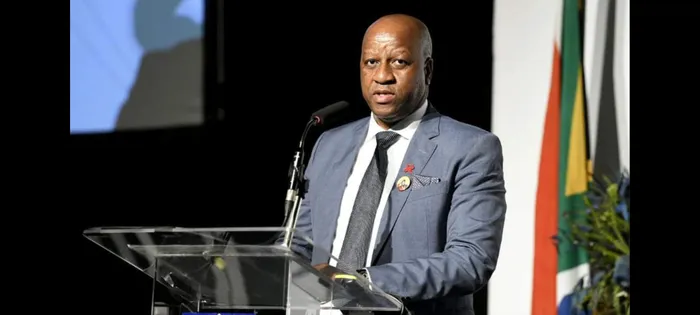KZN gears up for economic growth and investment

KwaZulu-Natal Premier Thamsanqa Ntuli has committed to economic development and investment growth leading to 2030. He spoke at this week’s two-day KZN Trade and Investment Conference at the ICC Durban.
Economic development and investment growth is the focus in KwaZulu-Natal (KZN), said premier, Thamsanqa Ntuli, as he underscored commitment to these in the run-up to 2030, aligned with the province’s broader strategic priorities.
He was talking at the KZN Trade and Investment Conference held at the Inkosi Albert Luthuli International Convention Centre (ICC) in Durban. The two-day conference, which took place on Monday and Tuesday, aimed to promote, brand, and market KZN as an investment destination as well as identify and develop investment opportunities, among others.
The conference brought together investors, government leaders, and industry captains to explore and amplify the province’s status as a top investment destination.
Delivering his keynote address, Mr Ntuli highlighted that over the past decade, KZN had attracted significant investments in key sectors, especially through developments at the Durban and Richards Bay Ports, two of Africa’s largest and busiest maritime hubs.
“Enhanced container capacity, automation, and infrastructure upgrades have strengthened KZN’s position as a regional logistics powerhouse. Similarly, the Dube Trade Port, adjacent to King Shaka International Airport, has drawn over R2 billion in investments. This has cemented its role in warehousing, logistics, and agriculture, including the Dube AgriZone, a major hub for export-focused agri-business,” Mr Ntuli said.
Reflecting on the 2019 Provincial Trade and Investment Strategy’s achievements and areas for intensified effort, he said the strategy targeted R76 billion in new and expansionary investments by 2024. This is alongside the creation of approximately 68 000 jobs and an increase in the province’s national export value to R1.28 trillion. While projections indicate that the targets may not be fully met by the year’s end, the Premier emphasised the need to redouble efforts in investment initiatives.
“The Richards Bay Industrial Development Zone (RBIDZ) has fuelled growth in heavy industry and energy, particularly in metals like aluminium and steel, generating jobs and boosting export potential,” the Premier said. “Renewable energy investments, particularly in biomass and solar, have diversified KZN’s energy landscape, with biofuel production from the sugarcane industry enhancing the province’s green economy credentials.”
The Premier also highlighted the province’s strong agricultural sector, which has attracted investments in agro-processing, and supporting industries including sugar refining, dairy processing, and timber. He added that this growth is further supported by a thriving food and beverage industry, pharmaceutical, and packaging sectors, benefiting from proximity to key ports and an expanding consumer base.
“Tourism also remains central to KZN’s economy, supported by new hospitality investments, including the reopening of the international Hilton Hotel and the Durban Beach promenade renewal. We have noted KZN’s absence from many long-haul tourist packages and we stress the importance of positioning the province as a key destination for international tourism,” said Mr Ntuli.
He also called attention to KZN’s role in automotive manufacturing, underscoring opportunities in electric vehicle (EV) component production to tap into Africa’s growing EV market.
“Sustainable growth initiatives, including green hydrogen, biomass, and digital innovation, are essential for positioning KZN as a leader in the renewable and digital economies. Collaboration with local universities and technology firms is building a skilled workforce to support industries like IT, finance, and business outsourcing - further enhancing KZN’s role as a technology and logistics hub,” Mr Ntuli said.
Related Topics: